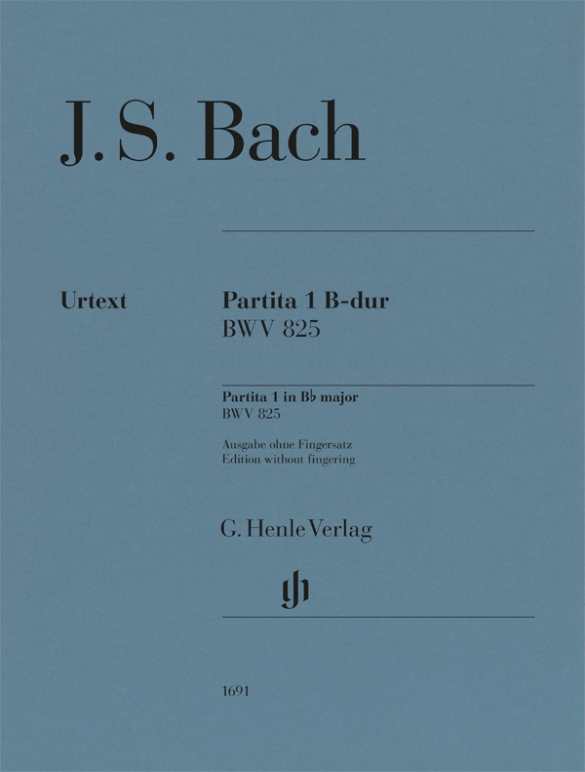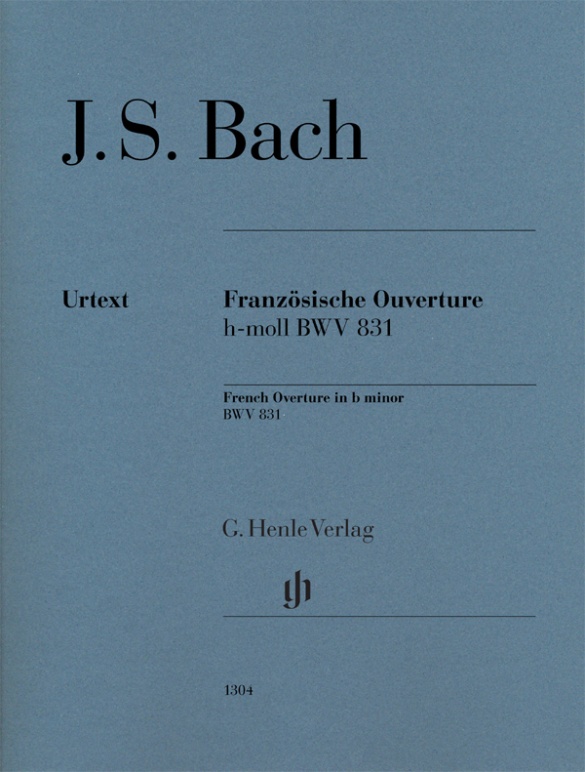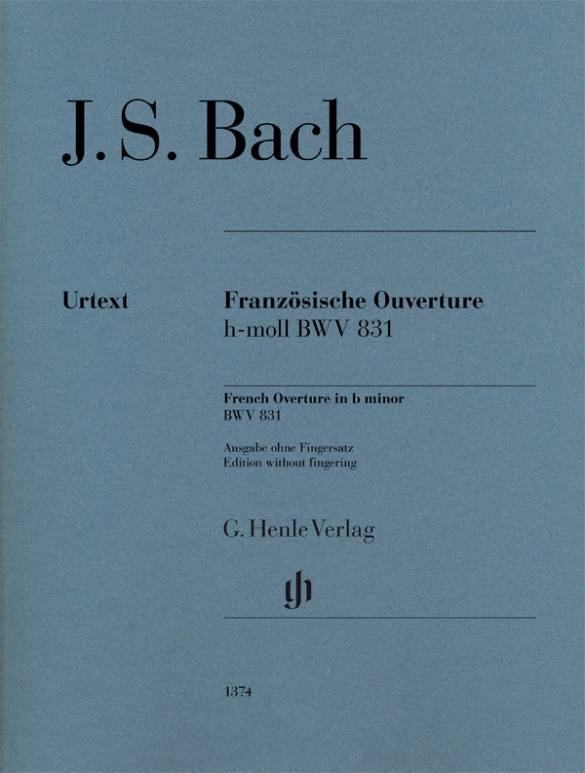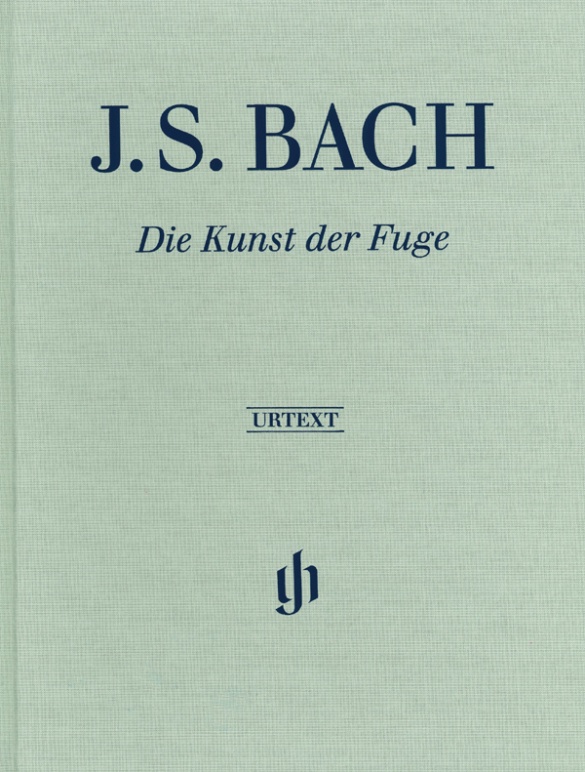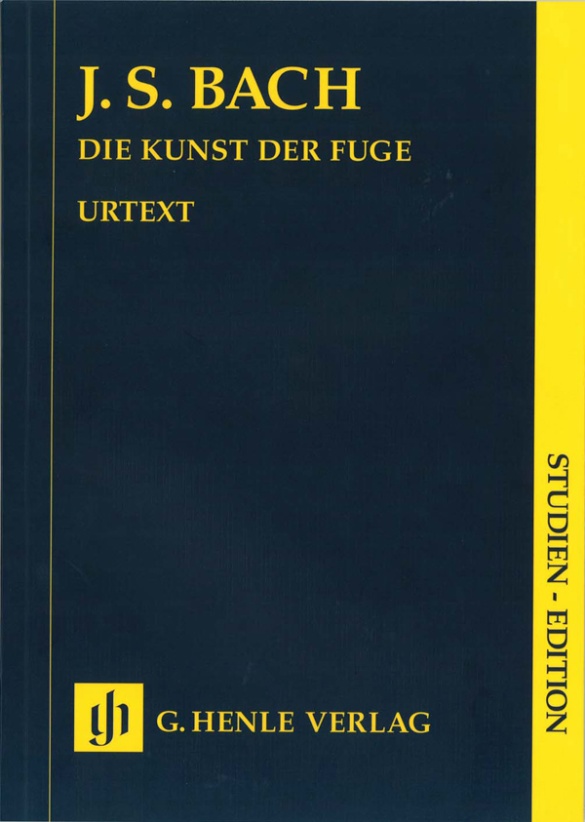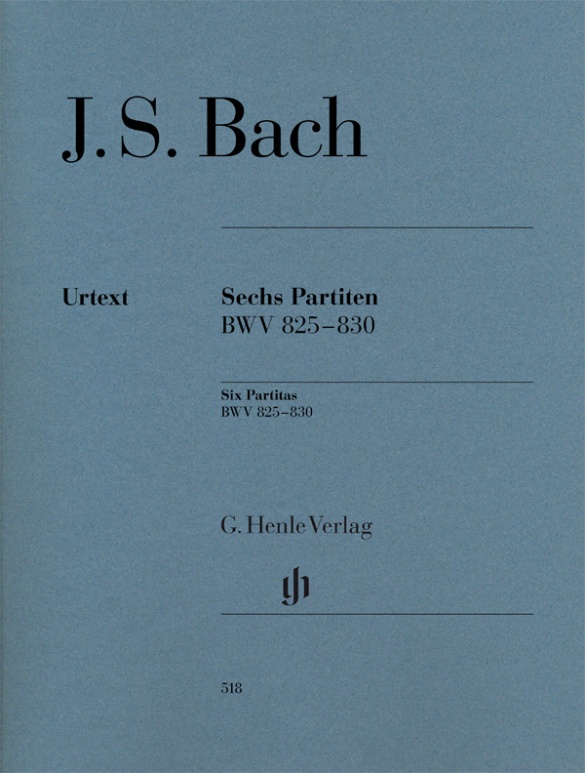

Johann Sebastian Bach
Six Partitas BWV 825-830
Bach’s Six Partitas form what is presumably the most famous and challenging collection of suites in music history. Bach was aware of the weightiness of his cycle as he initially had these multi-movement partitas, composed in Leipzig between 1726 and 1730, published in individual editions. This culminated in their publication in an anthology that proudly sports the opus number “1” in 1731. Their diversity of forms knows no bounds and the musical texture is infused with the most ingenious counterpoint, but at the same time performers will not miss out on the enjoyment of virtuosic playing in any way. G. Henle Publishers presents this magnum opus in a revised Urtext edition that consults the original editions as well as autograph sources while also extensively documenting the numerous entries in correction copies from Bach’s circle. In addition, the ornamented versions have been included in the appendix. A true milestone!
Read more about this edition in the Henle Blog.
Content/Details
(Explanation)
About the Composer
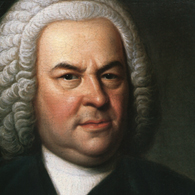
Johann Sebastian Bach
For many musicians he is “the Alpha and Omega of all music” (Max Reger). Except for operas, Bach composed masterpieces for every ensemble and genre of his age. His catalogue of works contains almost 1,100 entries, including the great Passions of St. Matthew and St. Johan, the Goldberg Variations, the Brandenburg Concerti, or hundreds of singular cantatas. As organist in Mühlhausen and Weimar he creates primarily organ compositions, concerti, and works of chamber music. Later, as music director in Köthen and for the decades he serves as cantor in Leipzig, he composes chiefly sacred vocal compositions and keyboard works. His later, contrapuntally complex compositions exert an enormous influence on the compositional styles and practices of later generations.
| 1685 | Born in Eisenach on March 21, the son of conductor and court musician Johann Ambrosius Bach. |
| 1693–95 | He attends the Latin school in Eisenach. |
| 1695–1700 | Enrolls at the lyceum in Ohrdruf, where he will live with his eldest brother, Johann Christoph, after the death of his parents; among other things, organist, and pupil of Pachelbel. |
| from 1700 | Member of the Lüneburg matins choir. Travels to Hamburg to hear Reincken at the organ. |
| 1703 | Appointment in Weimar for two quarters of a year (at the home of Duke Johann Ernst the elder). |
| 1703–07 | Organist in Arnstadt. Composition of organ works, possibly early preludes and fugues BWV 531, 549a, 575; chorales from the Neumeister Collection BWV 1090–95, 1097–1120; chorale partitas BWV 766–68, 770. |
| 1705 | Journey to Buxtehude in Lübeck. |
| 1707–08 | Appointment as organist at St. Blasius in Mühlhausen. Composition of his first cantatas (BWV 71 and 131, likely also BWV 4, 106, 150, 196). |
| 1708–17 | Appointment in Weimar as organist to Duke Wilhelm Ernst of Saxe-Weimar; composition of the Little Organ Book, BWV 599–644; of preludes (toccatas, fantasias) and fugues (probably BWV 894, 903, 944, 910–916); the Passacaglia in C minor, BWV 582; the Pièce d’Orgue in G major, BWV 572; organ transcriptions of instrumental concerti including Vivaldi’s “L’Estro Armonico.” From 1714 concertmaster, composer of cantatas. |
| 1710 | Birth of Wilhelm Friedemann Bach. |
| 1714 | Birth of Carl Philipp Emanuel Bach. |
| around 1713 | Premiere in Weissenfels of the cantata “Was mir behagt, ist nur die muntre Jagd!”, BWV 208. |
| 1717–23 | Appointed “Court Kapellmeister and Director of the royal chamber music” in Köthen to Prince Leopold von Anhalt-Köthen. He mainly composes keyboard music (completes the English Suites, BWV 806–811; begins the French Suites, BWV 812–817 around 1722; the “Clavier-Büchlein vor Wilhelm Friedemann Bach” from 1720; the “The Well-Tempered Clavier,” Book 1, in 1722; the first notebook for Anna Magdalena Bach from 1722; Inventions and Sinfonias for keyboard, BWV 772–801, in 1723), chamber music (Sonatas and Partitas for solo violin, BWV 1001–1006, in 1720), concerti (Brandenburg Concerti, BWV 1046–1051, dedicated to the Margrave of Brandenburg, in 1721); a few secular cantatas (including BWV 134a, 173a). |
| 1723–50 | Cantor at St. Thomas Church in Leipzig. |
| 1723–29 | First Leipzig period, primarily defined by liturgical compositions. |
| 1723/24 | First year’s cycle of cantatas: integration of existing cantatas from his time in Weimar and Köthen; parody techniques, that is, replacing the texts of the cantatas for new purposes. |
| 1724 | Performance of the St. John Passion, BWV 245, and the Magnificat, BWV 243a. |
| 1724/25 | Second year’s cycle of cantatas, with new compositions. |
| 1726 | Publication of the first Partita from the later Clavier-Übung (Keyboard Practice), BWV 825–830. |
| 1727 | Performance of the St. Matthew Passion, BWV 244. |
| 1729–39 | Second Leipzig period, informed by his direction of the Collegium Musicum, which Telemann had founded (1729–37 and 1739 until at least 1741), and thus by the composition of instrumental works as well as of large-scale vocal works. |
| around 1730 | Six Trio Sonatas for Organ (BWV 525–530), important preludes and fugues (B minor, BWV 544; C major, BWV 547; E minor, BWV 548). |
| from/around 1730 | Establishment of a new type of concerto with his concertos for 1–4 harpsichords (which are almost all transcriptions of concerti with solo melodic instruments). Further compositions for instrumental ensembles. |
| 1731 | Performance of the St. Mark Passion, BWV 247 (lost). Journey to Dresden for the performance of an opera by Hasse. Clavier-Übung I, BWV 825–830. |
| 1733 | Composition of a Lutheran mass (Kyrie and Gloria), whose movements are later included in the Mass in B minor, BWV 232; with it he requests a court position from Elector Frederick Augustus II in Dresden. |
| 1734/35 | Premiere of the Christmas Oratorio, BWV 248. |
| 1735 | Ascension Oratorio, BWV 11. Birth of Johann Christian Bach. Clavier-Übung II, BWV 971, 831. |
| 1736 | Title of Electoral Saxon Court Composer from Frederick Augustus II. |
| around 1738/39 | Four Lutheran masses, BWV 233–236. |
| 1739–50 | Third Leipzig period, characterized by compositions of his late phase featuring stile antico and complicated contrapuntal techniques. Climax of Bach’s keyboard output. |
| 1739 | Clavier-Übung III, BWV 802–805. |
| 1741 | Clavier-Übung IV, BWV 988 (Goldberg Variations). |
| 1739/42 | “The Well-Tempered Clavier,” Book Two, BWV 870–893. |
| 1747 | Journey to Potsdam, where he improvises a fugue on a theme by the king, from which emerges “The Musical Offering,” BWV 1079. Member of the Correspondence Society of Musical Sciences; submission of the Canonic Variations on “Vom Himmel hoch, da komm ich her,” BWV 988, for membership. Schübler Chorales, BWV 645–650. |
| 1749 | Completion of the Mass in B minor, which is largely based on earlier compositions that were revised and amended. |
| 1750 | “The Art of the Fugue,” which remains unfinished. Death in Leipzig on July 28. |
Product Safety Informations (GPSR)

G. Henle Verlag
Here you can find the information about the manufacturer of the product.G. Henle Verlag e.K.
Forstenrieder Allee 122
81476 München
Germany
info@henle.de
www.henle.com
Playing some of these pieces using his fingering suggestions, I found his ideas to be very welcome and often much-needed problem-solvers. It is a wonderful bonus that Henle have taken to employing some of the world’s greatest players to add fingerings in their editions. ... Speaking of the particular benefits of this new Henle edition, while it surely goes without saying that their house-style presentation and engraving are second to none, it is worth reminding readers with iPads that this edition also now appears in digital format within the Henle Library app. ... There have been many excellent editions of these works, but I really cannot imagine a better version of the Six Partitas at present, and I can recommend this one with the fullest confidence.
Pianodao, 2021Enkele jaren na Henle’s fraaie editie van de Franse Suites volgt, op hetzelfde hoge kwaliteitsniveau, de gebundelde uitgave van de beroemde Zes Klavierpartita’s.
de nieuwe muze, 2021Ulrich Scheideler hat das ebenso umfangreiche wie komplexe Material kompetent aufbereitet und eine Spielfassung erstellt, die eine alle denkbaren Aspekte einbeziehende Auseinandersetzung mit den Werken ermöglicht. Als echter Bonus sind drei im Anhang befindliche Tanzsätze mit umfangreichen Verzierungen und sogar Tonhöhenänderungen (Gigue der 3. Partita) zu werten, die nicht in den Hauptteil der Edition übernommen wurden. Die Fingersätze von William Youn erweisen sich vor allem bei einigen heiklen Stellen als außerordentlich nützlich.
Piano News, 2021recommendations
autogenerated_cross_selling
Further editions of this title
Further editions of this title


